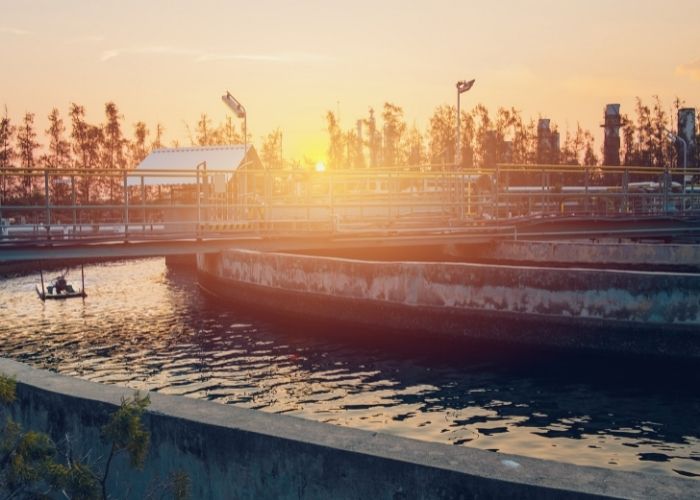MADRID – The sanction that the EU has imposed on Spain is getting higher and higher. Every semester, a fine of €10 million is added for the lack of adequate wastewater treatment in nine urban agglomerations where more than 350,000 people live.
The fine is now €53.4 million. It is the highest fine in the European Union that Spain has received since joining the community. In addition, the fine will continue to go up at €10 million per semester. This is as long as the problems in all areas denounced by Brussels are not resolved.
2023 target was set
When the European Court of Justice issued the verdict in July 2018, the Ministry of the Ecological Transition presented a calendar that set 2023 as the year when the treatment plants of the nine affected urban agglomerations would be ready. According to the ministry, planning for all works to be completed and fully operational now focuses on 2024 or 2025. At the moment, only the Tarifa (Cádiz) treatment plant can be started, which treats the wastewater of 20,000 inhabitants.
The rest of the improvement work stalls in endless procedures, executions and start-ups, while the European fine continues to grow. These are the treatment plants in the areas of Matalascañas (Huelva), Alhaurín el Grande (Málaga), Isla Cristina (Huelva), Coín (Málaga), Barbate (Cádiz), Nerja (Málaga), Gijón Este and Valle de Güímar (Santa Cruz the Tenerife).
Warning after warning
The start of the sanction dates from December 31, 2000, the date on which all urban areas of more than 15,000 inhabitants of the European Union had to properly purify their waters according to a directive. 21 years ago, non-compliance was the norm in Spain. Little by little, and warning after warning from the European Commission, the number of areas without water treatment has reduced.
However, more than two decades later, the water treatment of these eight areas is still below standards. And that situation affects the good condition of the rivers and seas where discharges take place.
Increased fine
But all treatment plants cannot be fully operational until 2024 or even 2025, two years later than planned so far. By then, the ministry estimates that the fine for this case will amount to more than €80 million.
The powers with regard to water purification lie with the local authorities. But when the municipalities or utility associations cannot afford the costs, the autonomous communities usually take over the works. This is the case in four of the eight cases affected by this European sanction. The sanctions are paid by the state and the affected autonomous communities.
In any case, in its judgment of July 2018, the Court of Justice of the EU emphasised that “the internal legal and economic difficulties that Spain has invoked “to justify its delay in the execution of the works” do not exempt it from the obligations derived from Union law”.
Extended Non-Compliance
Once the eight treatment plants are put into operation, the treatment problem in the country will still not be solved. According to the current national treatment plan approved last July, 516 installations do not meet the European water guidelines. That is 25% of the total. So five European files are open for Spain and another could be coming soon – which could also end in multimillion-euro sanctions if the breaches continue.
Estrela explains that the problems are now concentrated in the smallest areas with between 2,000 and 5,000 inhabitants and which do not have enough resources to handle the construction of the treatment plants and their maintenance. The aim is that by 2027, almost four decades after the adoption of the European Wastewater Treatment Directive, Spain will finally comply with what Brussels has established.


